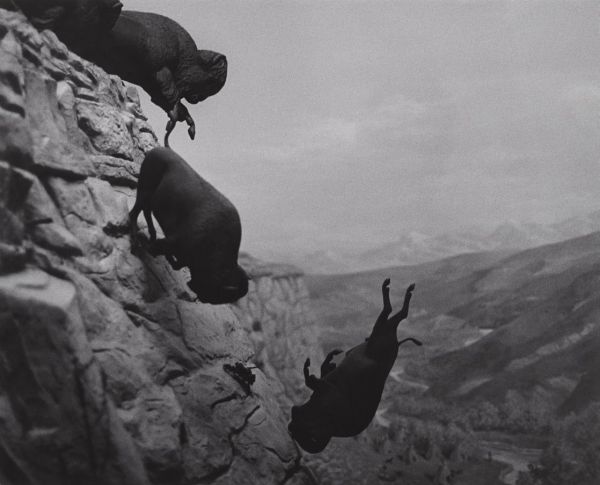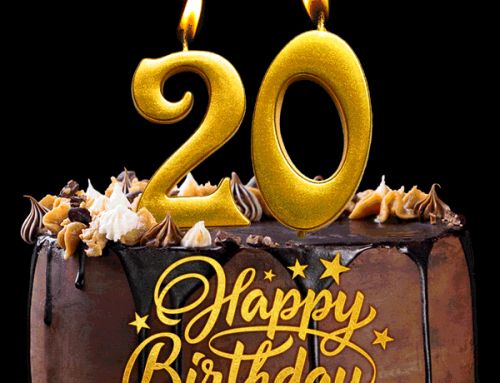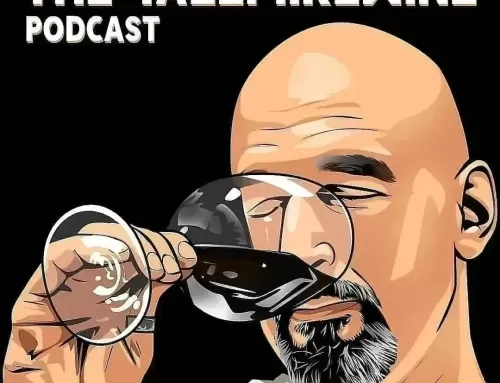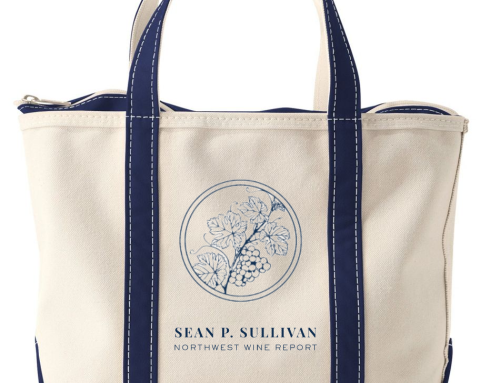 In a recent blog post, The Wine Bible author Karen MacNeil asked whether we are witnessing the end of wine writing. “Wine writing as a profession, a craft, even sometimes an art, is disappearing,” MacNeil writes. “And it’s not clear what, if anything, will replace it.”
In a recent blog post, The Wine Bible author Karen MacNeil asked whether we are witnessing the end of wine writing. “Wine writing as a profession, a craft, even sometimes an art, is disappearing,” MacNeil writes. “And it’s not clear what, if anything, will replace it.”
MacNeil lists a number of factors contributing to wine writing’s demise. They include the popularity of alternatives to wine, the percentage of adults cutting back or abstaining from alcohol, the decline in outlets where wine writers can get paid, and other factors.
Most of the things MacNeil lists are unequivocally true. Are we in fact witnessing the end of wine writing?
Let me first say that many factors affecting wine writing have nothing to do with wine. The number of outlets available to writers – all writers – is diminishing. Newspapers are near the end of a mass extinction event. Magazines are close behind. Few will survive.
No one will be surprised why. Over the course of 25 or so years, eyeballs have steadily moved on-line. Advertisers have followed suit, drying up print dollars.
Shouldn’t on-line sites provide more opportunities for writers? Opportunities, perhaps. Paying ones, no.
Compensation has been going down for years. There are fewer places to write for and existing outlets are paying less.
These technology-driven changes are by no means writer-specific. Traditionally, much of the money musicians made came from album sales. Bands toured to promote albums and thus sales. Streaming services eliminated that revenue. Money is now in touring, a complete flip.
Some issues are, however, specific to wine. The industry sailed into a well-forecasted storm of a smaller demographic that is also less interested in wine. The industry blinked and failed to adjust.
Additionally, the model for on-line revenue is based in large part on the number of eyeballs. Wine is very niche, which means that number is always small. Worse, it’s getting smaller. As MacNeil notes, there are also people willing to write about wine for nothing, which no industry can sustain.
What comes next? We already know the answer.
For people interested in making a living writing about wine or writing in general, the lifeboat is personal, or perhaps group, subscription-based sites. Many writers have already moved to Substack or to personal sites, as I have.
Why? The outlets these people wrote for have either gone under, laid them off, or pay too little. This trend will accelerate as more media companies founder and more writers become frustrated with the lack of proper compensation.
Monetizing one’s own site is not easy. It’s also far from lucrative unless the topic is sufficiently broad. Writing for oneself does, however, offer the opportunity to substantially exceed freelance dollars. More importantly, freelance money is going away.
Will Substack and self-branded sites allow wine writing to survive in the long or even medium-term? Not necessarily.
First, it’s labor intensive to start and sustain a brand. Second, there is a risk of subscription saturation. Third, the model is far from recession-proof.
There are, however, few if any other viable alternatives. One is to draw a lesson from the music world: Establish an audience with writing and use that audience to generate revenue by other means.
That is not an easy path either. It’s also similar to people who write about wine as a side gig. For those who want to write full-time and make a living doing it, that feels like defeat.
The cold reality for broader media is that things are going to get considerably worse before they might get better. As a result, wine writing in particular will likely be greatly diminished from what it was before. In that regard, I share MacNeil’s sadness.
I do, however, believe that – whatever happens next – wine writing will continue on for one simple reason. Many of us write about wine in part because we are passionate about the subject. Many of us also write about wine because we have to.
Wine writing might be shrinking. Wine’s soulful properties that compel people to write about it remain unchanged.
Postscript: For people who have already subscribed to this site, I offer my sincerest thanks. You are the reason I am able to continue writing and that this site exists. I ask for your continued support. To those who have not yet subscribed, now is the time. Please subscribe so that this site may continue.
This article has been updated.
To receive articles via email, click here.







I appreciate this thoughtful post. The trends described are inevitabilities. However, I share that optimism that wine writing will continue. I get my general news in completely different ways and patterns than I once did, but I do read and hear a fair amount of news. The mantra that “the only constant is change” may be tired, but it is true. Adaptability (like starting a personal site) is the only response. Not everyone is able to (or desires to) adapt, but I think there is a future for those that do. Considering and embracing all the shifting patterns, changing preferences, changing demographics will be key. As the wine industry changes overall, then wine writing will as well.
Sean:
It certainly is true that wine writing is declining, mainly as a result of dying venues for both the purest and the sophisticate. But it has forever been thus. The original article said there were only two full-time journalists writing about wine today. But how many wine writers are true journalists? I have a degree in journalism (1965) and worked for a decade in news for AP. My wine column has been nationally syndicated since March 1979. I currently write weekly for the Napa Register, weekly for (online) Napa Valley Features, weekly for Creators Syndicate (national), publish my own private wine newsletter, do a weekly one-hour radio show on wine, and make a dry Riesling under my own label. I’m writing a book on the history of Cabernet, and I run an international wine competition. So, yes, wine writing is declining. Is that why I am busier than I’ve ever been?
Dan
Dan Berger, in terms of how many wine writers are true journalists, it’s a good question. I would guess that the number is exceedingly small. I would also suspect it is getting smaller. People sometimes refer to me as a journalist, and I correct them. I am not. Very few wine writers are.
On Karen’s original article, it’s important to point out that she was talking about full-time *newspaper* journalists writing about wine. There are only two of those people. There are many other people working full-time writing about wine at various publications.
I do think certainly as a writer, if you are trying to make a living writing for other people’s media outlets, you have to do a lot more work now than you did 10 years ago. That’s mainly because, as I note in this article, there are fewer outlets and existing ones are paying less.
One thing I think is equally important is, because there are fewer outlets, lost revenue can be hard to impossible to replace. That adds to the difficulty.
Dan,
I believe what you lay out is an excellent example of the professional challenges we all face in making the wine industry our bread and butter. Simply put, today one must wear many hats and have a diverse amount of unique revenue streams. I don’t believe this has singularity in wine journalism either. As a wine grower and producer, we too are faced with having to adapt to a rapidly changing market and how consumers “consume”. It’s a challenging time to keep all the plates spinning.
There is a common theme that is evolving here though. While consumers attention span and interest in wine may seem to be declining, I believe folks are searching for something much more immersive today. Simply reporting isn’t interesting to anyone. The whole exchange has to be experiential between us and them. How will you take them on an engaging multimedia experience?
We now live in an Instagram, TikTok, Snapchat, YouTube world. That said, I do believe people are looking to engage beyond these platforms to gain the experience for themselves.
So, we must now figure out how to monetize this experience. In other words, media is the beginning of the process and no longer the end game.
A thought provoking post, Sean. I tried writing full-time. I remember going on media trips. I was writing about incredible wines and beautiful places, presumably for an audience that could afford the experience. After a while, I started to feel like a sham. At home I was struggling to buy necessities, while posting all this stuff to social medial. I remember a trip to Spain, when I left I had less than $20.00 in my bank account, not enough to tip the valet. I started to wonder, what would happen if something went wrong on the trip. What if I missed a connecting flight or got turned around. What then? It no longer felt authentic for me or even safe. At that point I realized that I needed to do something else.
Christine Havens, good to hear from you! Yes, one of the great ironies of wine writing is that many of us write about wines or potentially experiences that we could never afford. In any profession, it’s good to step away if what you are doing seems inauthentic. Not good for your writing and not good for the soul! I hope you are enjoying what you are doing now and find it fulfilling.